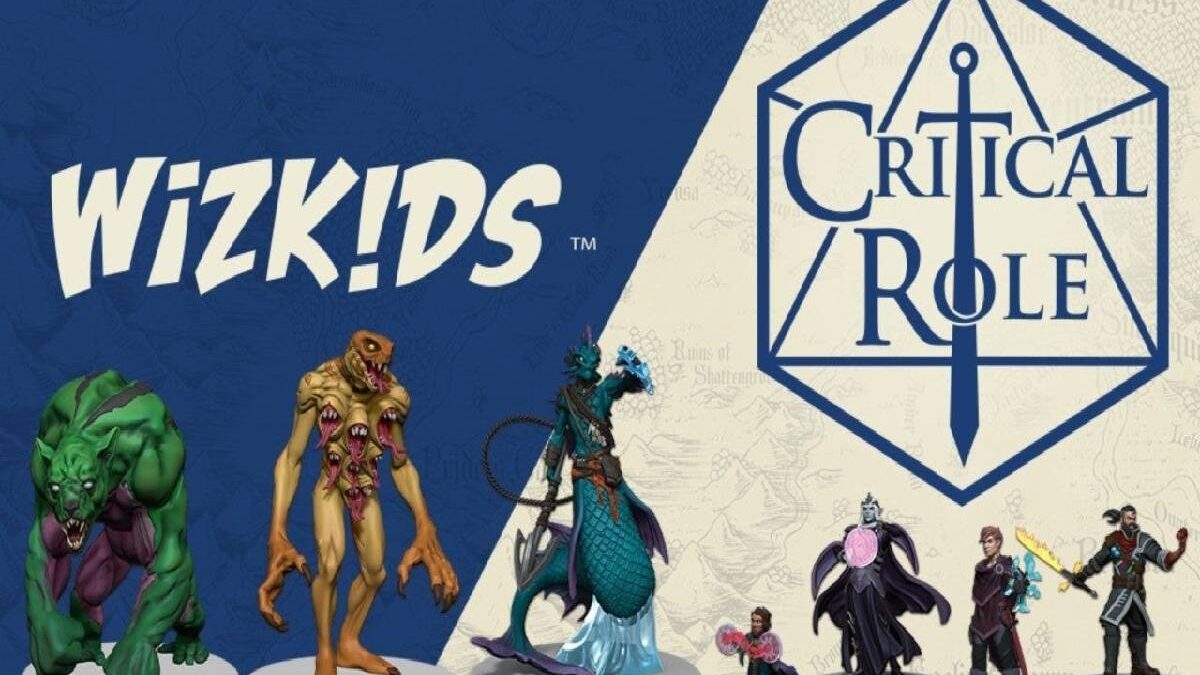Table of Contents
About
Critical Role-Playing Animated Series –
If you are a supporter of Critical role, the Weekly live broadcast of a stylized Dungeons & Dragons campaign featuring some of the most talented actors in the dubbing world, so you probably thought to yourself.
“This story would make a great animated series.” “Well, it turns out you were right, and the day has finally arrived.
The team has launched a new Kickstarter campaign to feature The Legend of Vox Machina to life as an animated series, due to debut in fall 2020.
The critical role team will co-write the show with TV writer Jennifer Muro ( Star Wars: Forces of Destiny, Spider-Man, Justice League: Action ).
The animation management will be Titmouse of Chris Prynoski, the Emmy Award-winning animation production company behind Big Mouth, The Venture Bros., Metalocalypse, Niko.
And also, the Sword of Light and Star Wars: Galaxy of Adventures.
Voice actors Matthew Mercer, Liam O ‘Brien, Taliesin Jaffe, Marisha Ray, Sam Riegel, Travis Willingham, Laura Bailey, and Ashley Johnson voicing their fan-favourite characters.
Bringing their experience in shows such as Teen Titans Go.
Critical Role-Playing Animated Series –
And also, Ben 10, Teenage Mutant Ninja Turtles, Attack on Titan, Dragon Ball Z, Sofia the First, Avengers Assemble, DuckTales, Transformers, and many more supporters.
There will be prizes for contributors such as personalized portraits of the animators, limited edition soft toys, dice, playing cards.
And unique opportunities for super fans and big players.
But of course, the actual price is that we will be able to see this epic tale come to life in animation for the very first time!
You can find more details below:
These invisible whales could sink into the economy
Critical Role-Playing Animated Series –
Before losing everything overnight, Bill Hwang was back.
In 2012, Mr Hwang, former hedge fund manager, pleaded guilty to wire fraud and crime of ‘insider set fresh.
But it started again in 2013, using $ 200 million from its closed hedge fund to create Archegos Capital Management – also-called family fund.
Mr Hwang, tainted with scandal, then turned $ 200 million into $ 20 billion, parent big on a high-profile media and technology stocks portfolio.
But Mr Hwang built this wealth on a mountain of debt – and when his bets went wrong.
It wasn’t the case just Archegos who paid the price: the banks who loaned money to Mr Hwang, including Credit Suisse and Morgan Stanley.
And also have lost more than $ 10 billion, while the stocks he bet on lose $ 33 billion in value.
From regulators to the financial press, everyone seemed mystified by the Archegos implosion.
Partly, when Congress passed the Dodd-Frank law of 2010, which introduced new oversight measures for fund managers privately.
They exempted family funds like Mr Hwang.
Hedge funds must publicly report certain positions in stocks.
And options each quarter by filing a Form 13F with the Securities and Exchange Commission.
But family funds don’t need to deposit a 13F, so their portfolio positions remain hidden.
For the average American faced with the ravages of life’s Covid.
The Bill Hwang and Archegos story may seem like just another big Wall Street cat that has grown too greedy.
But there may be many more Archegos-sized risks – hidden from regulators, lawmakers and traders.
Now threatening to trigger the next financial crisis.
In the year 2021, Archegos bet that the price of approximately nine hot titles, including ViacomCBS, Discovery, and Baidu, would continue to climb.
It seemed to have a good reason: Saycovery and ViacomCBS invest in streaming service s, a booming industry.
But Archegos didn’t just buy and hold. Borrowed money and under-regulated derivatives to make bigger bets and riskier.
Just as you can borrow money against the value of your house.
And you can borrow money against a portfolio of stocks.
Regulators limit the professional investors at 2-to-1 leverage – brokers will allow them to buy $ 200 in store for every 100 $ assets.
But private fund managers like Mr Hwang don’t have an upper limit.
Many private funds can borrow five or ten times the value of their wallet.
Arches may have reached a level as high as 20 to 1.
Once Mr Hwang’s investments starters in full swing, he wanted more. Rather than cashing in, he continued to borrow from the world’s biggest banks, pushed to make even bigger bets.
To do this, he used what is called a total return swap, a type of derivative that offers.
And also, all the economic advantages to own stock without forcing Archegos to spend money to buy it.
Worked
That is how it worked: Archegos paid a bank like UBS a set fee.
In return, the bank bought shares in ViacomCBS and then delivered Archegos all income and capital gains generated by the claim.
When the stock price fell, Archegos would pay the bank the amount of the stock fall.
All Mr Hwang had to do was find a banquet who believed that Archegos was sufficiently solvent – and he found a lot.
But the same leverage that fueled Archegos ‘success has also turned out to be its downfall.
At the end of March, ViacomCBS sought to capitalize on a meteoric period of four months which saw its stock triple issue of new shares.
ViacomCBS did not know that its growth was mainly a by-product of Mr Hwang’s big swap bets.
Mr Hwang was not on the ViacomCBS show, even after initially showing interest.
Reports suggest he broken, that he had no more money to buy stocks.
As a result, the offer of ViacomCBS has ended well below target. In just one week, the stock lost half of its value.
Due to the way total return swaps structured, Archegos agree to pay for any loss on the stock. When he couldn’t pay, it was by default.

